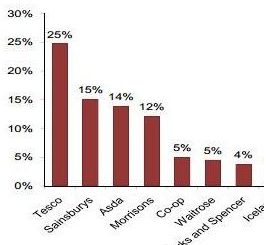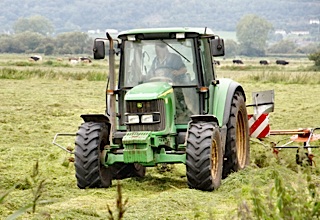UK food campaigners are wondering if the term “genetically modified” has been dropped from the high-tech marketing vocabulary.
 In the GM_Action Yahoo group, GM-Free Cymru activist Brian John wrote: “Has the term ‘GM’ now been officially banned from the vocabulary of JIC [John Innes Centre] scientists and government spokesmen?”
In the GM_Action Yahoo group, GM-Free Cymru activist Brian John wrote: “Has the term ‘GM’ now been officially banned from the vocabulary of JIC [John Innes Centre] scientists and government spokesmen?”
Last week, the Gates Foundation announced that is providing USD 10 million to support research at the John Innes Centre (JIC) to develop nitrogen-fixing cereal crops. JIC already receives GBP 45m in UK taxpayers’ money for its many research projects.
In a smoke-and-mirrors press release, JIC declared: “During the Green Revolution, nitrogen fertilisers helped triple cereal yields in some areas,’ said Professor Giles Oldroyd from JIC. ‘But these chemicals are unaffordable for small-scale farmers in the developing world.’”
Apart from overlooking the obvious question of who might have profited from the sale of artificial nitrogen sources, JIC goes on to suggest that: “…new research will investigate the possibility of engineering cereals to associate with nitrogen-fixing bacteria and of delivering this technology through the seed.” But in its press release, and on the JIC website, there is no mention at all of genetic modification or genetic engineering – although the media are in no doubt that this is a GM project.
Soil Association policy research director Peter Melchett warns that researchers admit any results could be decades away from any commercial application. He adds that some scientists: “…say that genetic engineering cannot actually deliver commercial crops that will fix Nitrogen.”
Melchett concludes that there are safer low risk options: “In the meantime, most international scientists agree that agroecological solutions, shown by other UK researchers to be capable of increases yields in countries in Africa by up to 100%, are available right now. It may not make for simple headlines, but getting on and delivering real solutions that are already available is what will make a real difference now to the availability of food in Africa.”





